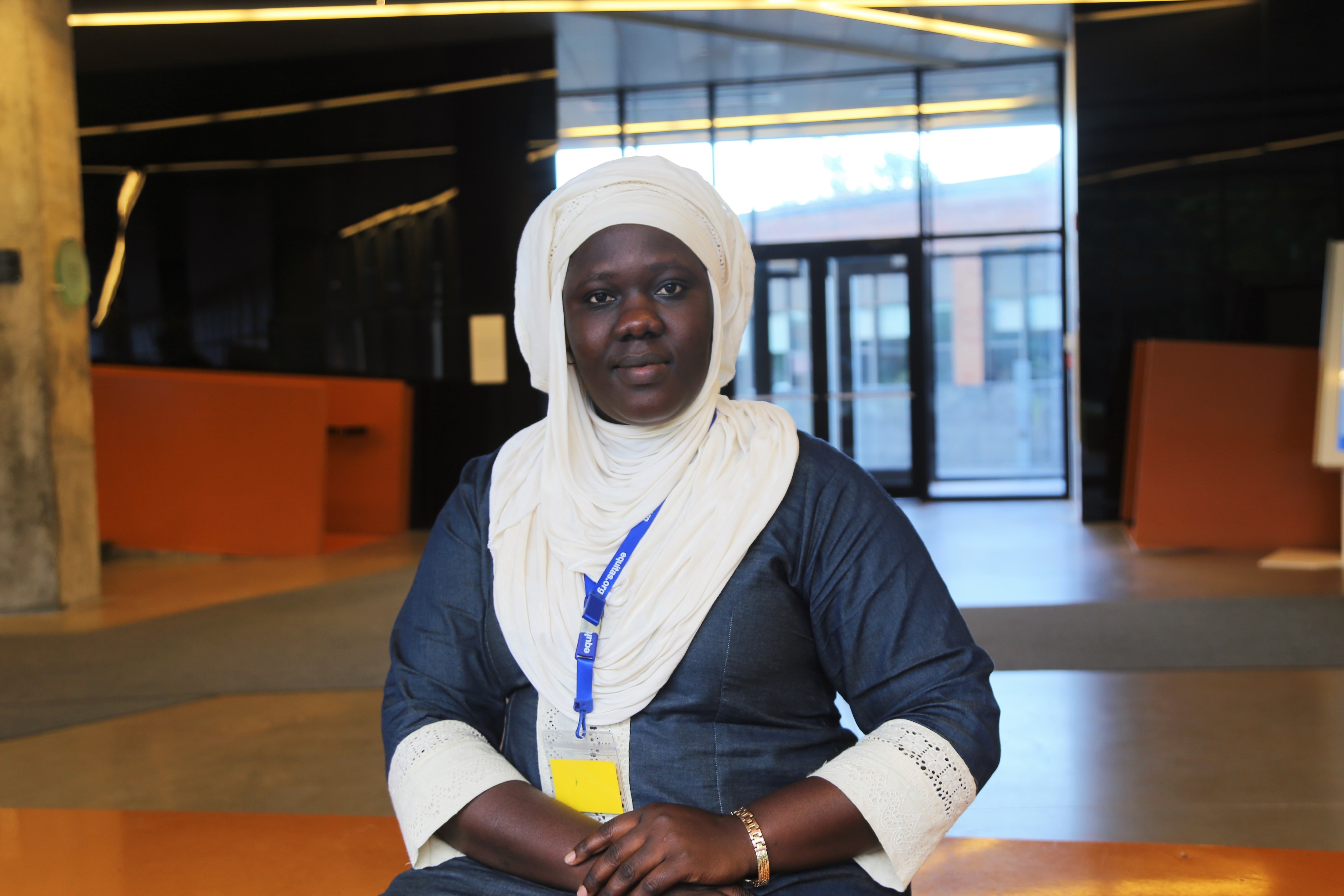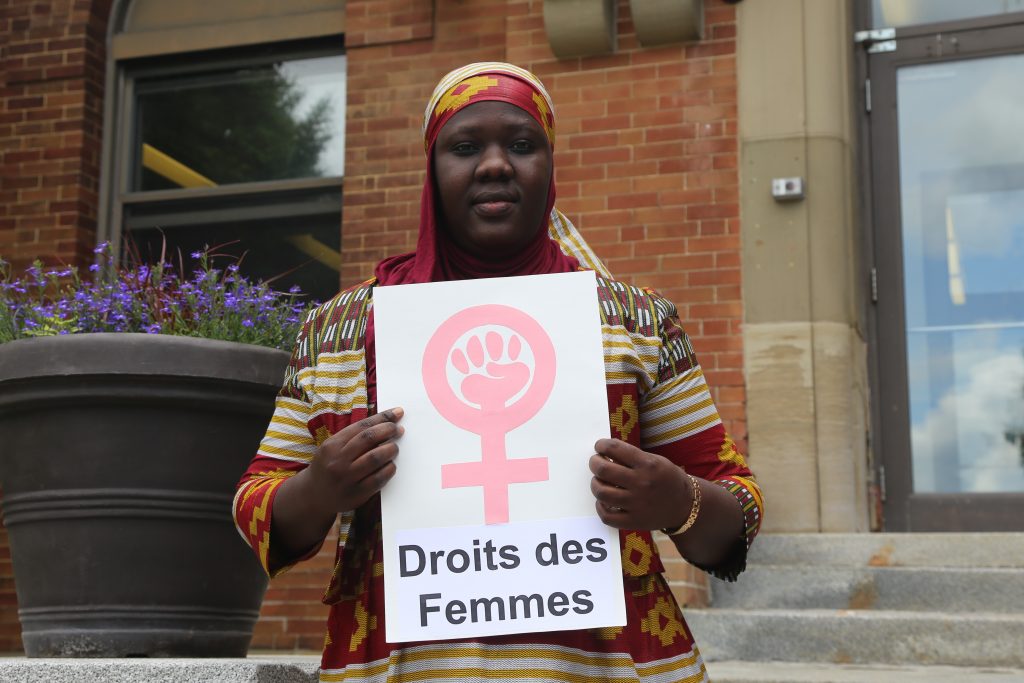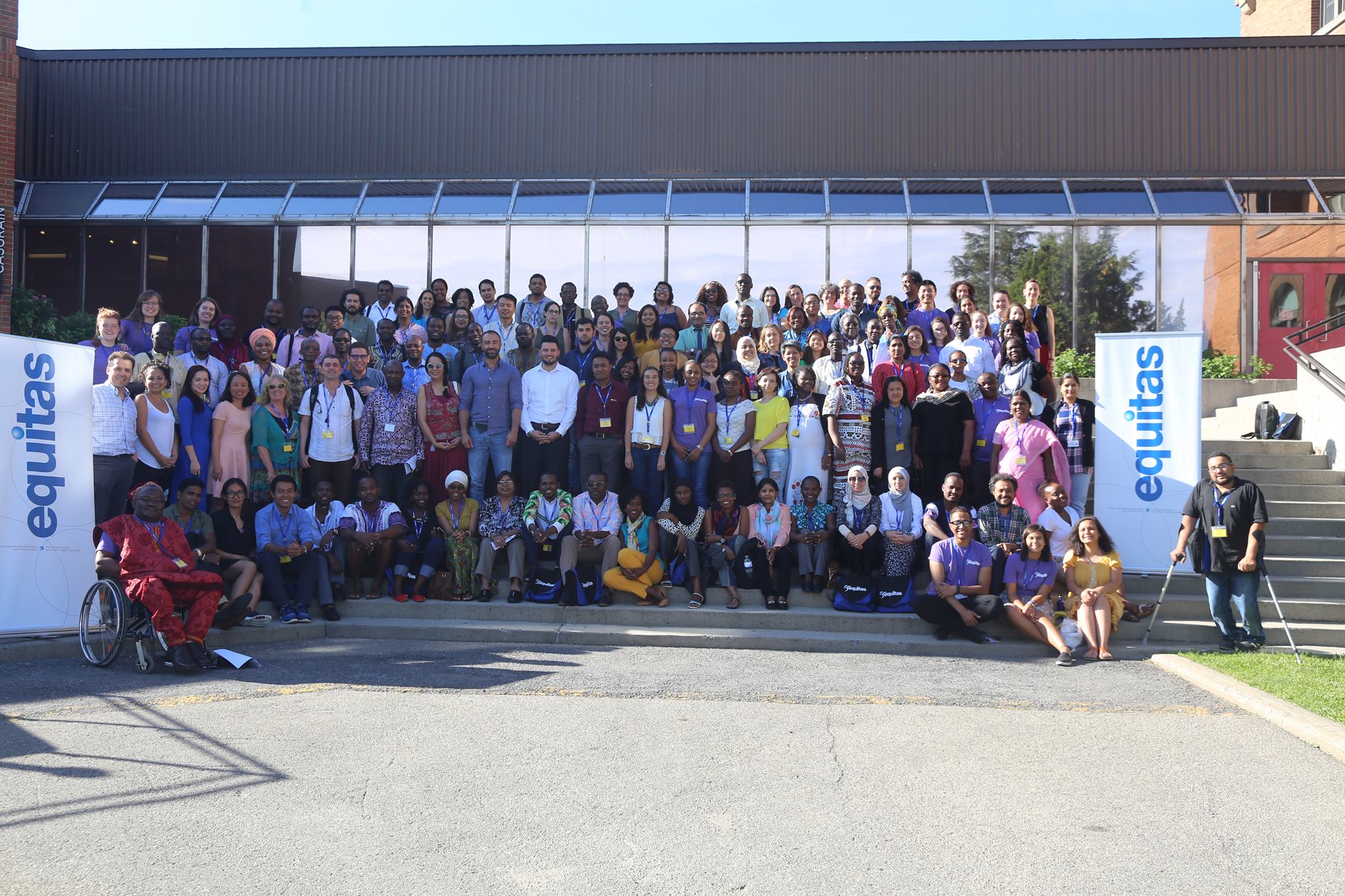
Salie Thiam in Montreal, Canada (June 2017)
Every year, Equitas – in collaboration with Global Affairs Canada – offers the prestigious Ruth Selwyn bursary to one of 100 participants attending its International human rights training program (IHRTP). This bursary recognizes the participant’s work in the promotion and protection of women’s rights. The bursary honours Ruth Selwyn, executive director at Equitas for more than 10 years (1992-2004), who greatly contributed to the emancipation of women in Quebec and established a dynamic network of human rights educators around the world.
The Senegalese Salie Thiam, Coordinator of the judicial program at the Réseau Africain du Développement Intégré (RADI)[1], is the 2017 recipient of the Ruth Selwyn bursary.
Awarded this past June during the IHRTP, the bursary allowed Salie Thiam not only to be empowered in her role as a human rights educator, but also to be equipped with new practical strategies to strengthen gender equality and empower women and girls in Senegal. She counts herself lucky to be honoured by Mrs. Selwyn.
“When I received the Ruth Selwyn bursary, I did a little bit of research on the work she had done and I discovered that she was an exceptional women’s rights defender…I hope to honour her and to be in her image!”
Human rights education, an essential approach to help women protect and promote their rights
As Coordinator of the judicial program, Salie works with all the departments of the RADI to elaborate programs centered on human rights education. She coordinates the implementation of the different programs in all 5 regional offices in Senegal and does follow-up activities on the ground to ensure that all projects are carried out successfully.
When we know that each regional office – also called Union de groupements Partenaires du RADI (UGPR) – brings together more than 3,000 women, we quickly understand the important role that rights-based programs play in bolstering the capacity of women and girls and guaranteeing a transfer of knowledge and skills about human rights to vulnerable populations.
These regional offices also incorporate the Centres d’informations Juridiques that give women victims of gender-based violence easier access to justice.

Women as powerful agents of their own development
It is the women who are members of the UGPRs that pursue the majority of the activities in their own communities.
“These women…we accompanied them, we enabled their advocacy skills, their knowledge in humans rights and in decentralization,” says Salie. “We realized that, at the base of it, communities must be able to appropriate theirs rights and know their rights as citizens; this is why we need to integrate them in the creation, execution and follow-up evaluations of the projects.”
Today, the women trained by Salie Thiam now elaborate their own advocacy projects and denounce the violations of their rights.
Furthermore, the UGPRs have funds – Mutuelles d’Epargnes de Crédit – that can be loaned to women so they can engage in economical activities and become more financially independent.
For this Ruth Selwyn bursary recipient, there is no doubt: women are powerful actors of change that can rely on their own strengths and capacities to find solutions to the problems that affect African communities. As human rights educators, our role is to equip them, accompany them in their learning and support them in their efforts.
The promotion and the protection of the rights of women and girls, a work of alliances and collaboration
Despite all the programs elaborated to help women, the violation of women’s and girls’ rights remains an important problem in Senegal and in West Africa.
Equitas’ IHRTP gave Salie the opportunity to meet human rights defenders from her region and from all over the world who work on similar issues, and to create new important alliances.
“Within the context of our work, the violations of women’s and girls’ rights is truly a difficult problem to eradicate, so we need all the networking and the alliances that we can create to really eliminate the phenomenon of gender-based violences.”
Following her participation at the IHRTP, Salie Thiam now joins the more than 3,500 human rights leaders that share positive practices, strategies and initiatives on the online Equitas community. Armed with new knowledge, Salie tells us that
“(…) now, thanks to the IHRTP, I feel capable of better accompanying communities in the fight against gender-based violence and for the respect for women’s and girls’ rights.”
She returns to Senegal ready to take on her role as a leader in the elaboration of human rights based community projects, and dedicated more than ever to make the rights of all shine.

The 2017 IHRTP Cohort
[1] Created in 1985 and based in Senegal, the RADI is a pan-african organization that works in many fields, including health, education and good governance, and pursues all its activities with an approach based in human rights. The fight against injustices directed at vulnerable groups, especially women and girls, is at the heart of all their actions.
By Gabrielle Vendette, Communications assistant – IHRTP 2017
Did you enjoy this story?
Take a look at how you can support our work for gender equality and the empowerment of women and girls by contributing to the Ruth Selwyn bursary. Please contact Equitas Development Manager Brigitte Malenfant.
Do you want to learn more about the power of human rights education in the fight for gender equality?
Join us from November 30 to December 3, 2017 in Montreal, Canada for the 8th International Conference on Human Rights Education.